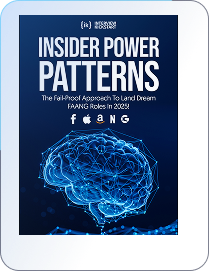SQL Joins interview questions are among the most commonly asked in SQL Developer interviews. These questions are based on the types of SQL Joins and their applications.
An SQL Join statement joins data or rows from two or more tables based on a shared field. SQL is used in more than 1,95 lakh companies to carry out functional tasks.SQL interview questions are frequently asked in technical interviews because RDBMS is still a widely used database management system in organizations worldwide. SQL Joins questions can also be asked in data analyst, data scientist, and data engineer interviews, among other places.
Read on to learn about the topics you should be studying for your interviews, as well as the most frequently asked SQL Joins questions in FAANG interviews.
If you’re a software engineer, coding engineer, software developer, engineering manager, or tech lead preparing for tech interviews, check out our technical interview checklist, interview questions page, and salary negotiation ebook to get interview-ready!
Having trained over 17000 software engineers, we know what it takes to crack the most challenging tech interviews. Since 2014, Interview Kickstart alums have landed lucrative offers from FAANG and Tier-1 tech companies, with an average salary hike of 49%. The highest-ever offer received by an IK alum is a whopping $933,000!
At IK, you get the unique opportunity to learn from expert instructors who are hiring managers and tech leads at Google, Facebook, Apple, and other top Silicon Valley tech companies. Our reviews will tell you how we’ve shaped the careers of thousands of professionals aspiring to take their careers to new heights.
Want to nail your next tech interview? Sign up for our FREE Webinar.
SQL Joins interview questions account for many technical and coding SQL interviews. In this article, we will go over the most common SQL Joins interview questions that are asked of both new and experienced developers.
We will cover these topics:
SQL Developers design database systems that store and access information related to a business. SQL Developers are responsible for incorporating a high level of technical know-how and data management skills to make the systems safe and secure. Their job is to prevent unauthorized access to these systems as it may put sensitive data and the business’s reputation at risk.
Besides this, SQL Developers are responsible for evaluating network infrastructure and running diagnostic tests. They need to update all information systems to ensure seamless navigation and optimal performance from time to time. To handle sensitive data related to a business, an SQL Developer must possess excellent programming skills, data engineering, and software management skills.

Before you start with your SQL Joins interview preparation, it will be a good idea to brush up on the fundamentals. The questions asked in the tech interview are based on the following SQL Join concepts:

SQL Joins questions asked in FAANG interviews are based on the types of SQL Joins and their applications. Besides core concepts, SQL Server interview questions are based on the position and required work experience.
Here are some SQL Join interview questions and answers commonly asked in SQL tech interviews. Make sure you practice these questions multiple times to increase your chances of cracking your interview.
Q1. What are SQL Joins?
A. An SQL Join is a clause or statement used to combine two or more tables based on common fields present in the tables.
An example of combining two tables in an organization’s database can be EmployeeInformation and EmployeeSalary. You may want to fetch the name of the highest or lowest paid employee. Now, you will find the name in the EmployeeInformation table, whereas the salary will be in the EmployeeSalary table. To obtain the necessary information, an SQL Join is used.
EmployeeInformation

EmployeeSalary

Syntax:
SELECT *
FROM EmployeeInformation INNERJOIN EmployeeSalary
ON EmployeeInformation.EmpId = EmployeeSalary.EmpId;
Q2. What are the different types of Joins in SQL?
A. The following are some types of SQL Joins:

Q3. What is the difference between Full Join and Cross Join?
A Left Outer and Right Outer Join combine to make a Full Outer Join. It returns the query’s WHERE clause in all rows in both tables. When the ON condition is not satisfied, it returns a NULL value. A Cross join returns all possible combinations of all rows of both tables, resulting in a cartesian product between the two tables. The comparative difference between the two is tabulated as follows:
Q4. What is Natural Join?
A. A Natural join creates an implicit join clause between two tables based on their common attributes. A common attribute has the same name in both tables. Unlike an equi join, a Natural join does not need a comparison operator.
Let us consider an example of a Natural join. Given two tables, Employee and Department, both have a common attribute, ‘EmpNo.’
Employees

Department

Syntax:
SELECT Employees.Name, Department.DName
FROM Department
Natural JOIN Employees
Q5. What is an Equi Join?
Ans. It is a type of join that combines tables based on matching values in the specified columns. Some features of equi join are:
Syntax:
SELECT *
FROM TableNameA
JOIN TableNameB
ON TableNameA.ColumnName = TableNameB.ColumnName;
Here are some Amazon SQL Interview Questions for more practice.
These are some of the most frequently asked SQL Query interview questions on Joins:
Here are some SQL Join interview questions on Joins and Subqueries:
Also, check out the most frequently asked Facebook SQL Interview Questions here.
Take a look at these SQL Joins interview questions for experienced professionals:
SELECT a.Col1, b.Col2
  FROM tbl_samplejoin1 a INNER JOIN tbl_samplejoin2 b
  ON a.Col1= b.Col2
Recommended Reading: 50+ SQL Interview Questions and Tips on How to Crack Them
â€Questions asked in SQL interviews are based on SQL Join topics – Joining Tables & Queries, Inner Join, Left Outer Join, Right Outer Join, Full Outer Join, Cross Join, Union, and Union All. There is a special focus on the application of SQL Join in various practical scenarios.
â€A. Some of the major companies that use SQL are Stack Overflow, Accenture, Microsoft, Cognizant, Dell, Alibaba Travels, Paralect, and many more.
CTE stands for Common Table Expression. It is a temporary named result set used to reference a SELECT, UPDATE, INSERT, or DELETE statement.
â€The simplest way to explain SQL Joins in an interview is by talking about its basic function of combining data from two or more tables in SQL. For this, all the tables involved should have at least one common data column.
The difficulty of SQL Joins interview questions differs based on your experience level. The most commonly asked SQL Joins interview questions are: What are SQL Joins? What are the different types of Joins in SQL? What is the difference between Full Join and Cross Join? What is the difference between Full Join and Cross Join?
The average salary of an SQL Developer is approximately $87,398 per year.
Nail your SQL Joins interview by preparing every aspect from specific SQL Joins interview questions and SQL Joins applications, along with in-depth preparation for behavioral and leadership interview rounds.
Experts recommend practising mock interviews and SQL interview questions before you sit for the actual interview. It will boost your confidence and prepare you for all kinds of possible scenarios you can face in the actual interview.
If you prepare the right way, guided by FAANG interview experts, you can easily crack your next SQL Joins interview. Register for IK’s webinar today to leverage exclusive interview preparation courses and mock interviews with experts.
Interview Kickstart has helped over 17,000 engineers land coveted offers from FAANG and tier-1 companies. Our instructors are technical leads and hiring managers at FAANG and know exactly what it takes to crack SQL interviews. Talk to our career counsellors, or register for our webinar to learn more.
Sign up for our FREE webinar on How to Nail Your Next Tech Interview.
Attend our free webinar to amp up your career and get the salary you deserve.

693+ FAANG insiders created a system so you don’t have to guess anymore!

100% Free — No credit card needed.

Time Zone:






Get your enrollment process started by registering for a Pre-enrollment Webinar with one of our Founders.

The 11 Neural “Power Patterns” For Solving Any FAANG Interview Problem 12.5X Faster Than 99.8% OF Applicants
The 2 “Magic Questions” That Reveal Whether You’re Good Enough To Receive A Lucrative Big Tech Offer
The “Instant Income Multiplier” That 2-3X’s Your Current Tech Salary

The 11 Neural “Power Patterns” For Solving Any FAANG Interview Problem 12.5X Faster Than 99.8% OF Applicants
The 2 “Magic Questions” That Reveal Whether You’re Good Enough To Receive A Lucrative Big Tech Offer
The “Instant Income Multiplier” That 2-3X’s Your Current Tech Salary
Just drop your name and email so we can send your Power Patterns PDF straight to your inbox. No Spam!
By sharing your contact details, you agree to our privacy policy.
Time Zone: Asia/Dhaka

We’ve sent the Power Patterns PDF to your inbox — it should arrive in the next 30 seconds.
📩 Can’t find it? Check your promotions or spam folder — and mark us as safe so you don’t miss future insights.
We’re hosting a private session where FAANG insiders walk through how they actually use these Power Patterns to crack interviews — and what sets top performers apart.
🎯 If you liked the PDF, you’ll love what we’re sharing next.
Time Zone:

